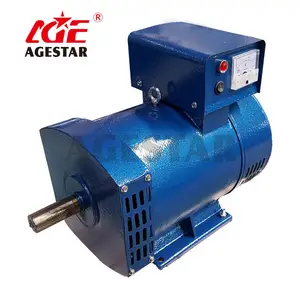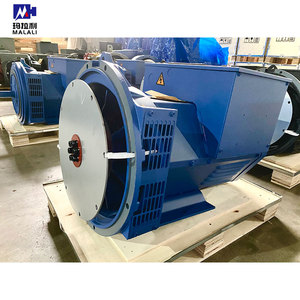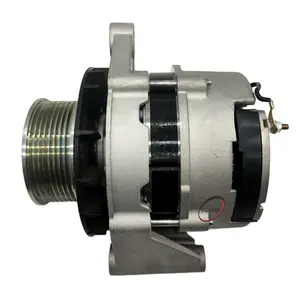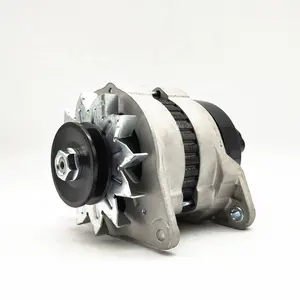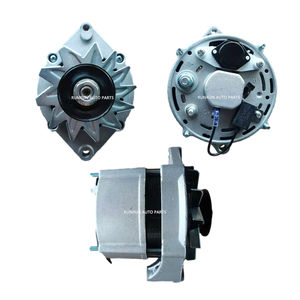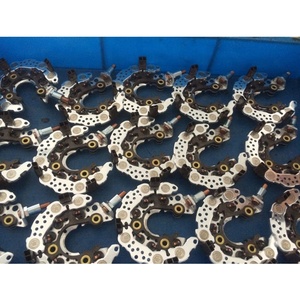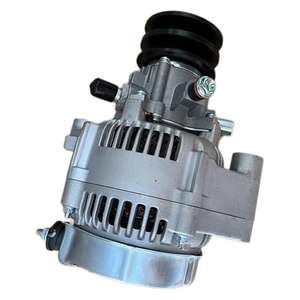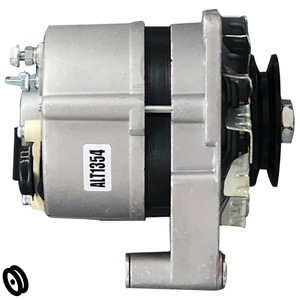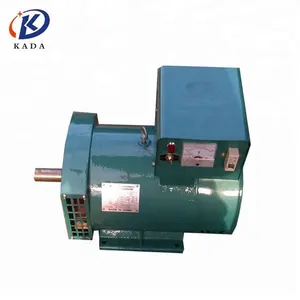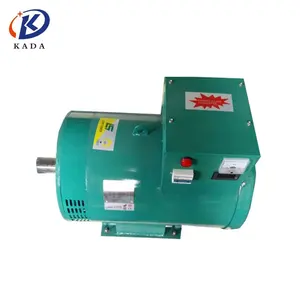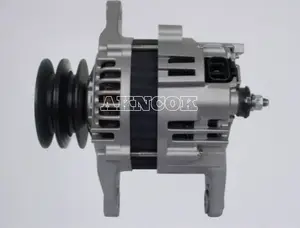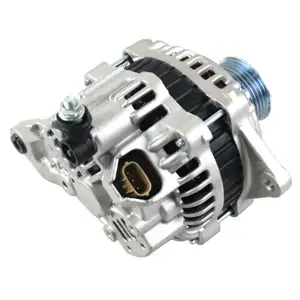2 Types Of Alternator


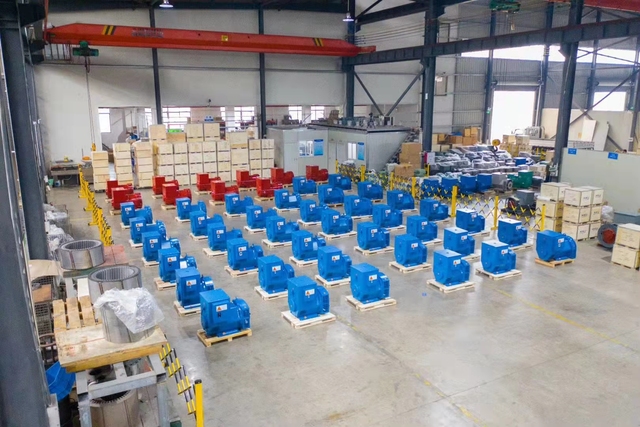
































 CN
CN


































About 2 types of alternator
Where to Find 2 Types of Alternator Suppliers?
China remains the central hub for alternator manufacturing, with key suppliers concentrated in industrial regions such as Jiangsu, Fujian, and Zhejiang provinces. These areas host vertically integrated production ecosystems specializing in both automotive and industrial-grade alternators. Suzhou and Ningbo in Jiangsu and Zhejiang, respectively, are home to advanced machining facilities that support high-volume production of brushless and single/three-phase alternators. Fujian’s Fuan city has emerged as a specialized cluster for generator-integrated alternators, leveraging proximity to copper and steel suppliers to reduce material costs by 10–15% compared to non-cluster manufacturers.
The regional supply chains enable rapid component sourcing and assembly, supporting flexible order fulfillment for both OEM and aftermarket segments. Suppliers in these zones typically operate within 50km of core material providers and logistics hubs, ensuring lead times averaging 20–35 days for standard configurations. Economies of scale allow competitive pricing, particularly for diesel generator alternators ranging from 8kW to 300kVA, while localized R&D teams facilitate customization in voltage output, rotational speed (1500/1800rpm), and enclosure design.
How to Choose 2 Types of Alternator Suppliers?
Selecting reliable alternator suppliers requires a structured evaluation of technical, operational, and transactional factors:
Technical Specifications & Product Range
Confirm alignment between supplier offerings and application requirements. Key differentiators include phase type (single or three-phase), excitation method (brushless preferred for durability), and compatibility with prime movers (diesel, gasoline, or hydro turbines). Suppliers should provide detailed performance data including efficiency ratings (typically 92–96%), insulation class (F or H), and protection rating (IP21–IP55).
Production Capacity & Quality Assurance
Assess infrastructure through verifiable metrics:
- Minimum factory area exceeding 3,000m² for consistent batch production
- In-house winding, impregnation, and dynamic balancing processes
- Use of copper wire (superior conductivity) versus aluminum alternatives
Prioritize suppliers with documented quality management systems. While ISO 9001 certification is not explicitly stated in all cases, on-time delivery rates above 90% and response times under 4 hours indicate operational discipline.
Transaction Reliability & After-Sales Support
Evaluate reorder rates and delivery consistency as proxies for customer satisfaction. A reorder rate above 25% suggests product reliability and service quality. Use secure payment methods with milestone-based releases, especially for first-time engagements. Request sample units to validate build quality, electrical stability under load, and terminal configuration accuracy before scaling orders.
What Are the Best 2 Types of Alternator Suppliers?
| Company Name | Main Products | Online Revenue | On-Time Delivery | Reorder Rate | Avg. Response | Min. Order | Price Range (USD) |
|---|---|---|---|---|---|---|---|
| Suzhou Malali Electric Technology Co., Ltd. | Generator Parts & Accessories, Diesel Generators | US $90,000+ | 86% | 28% | ≤1h | 1 set | $1,074–5,100 |
| Fuan Westin Jet Electric Machinery Co., Ltd. | Diesel Generators, Hydro Generators, Pumps | US $610,000+ | 100% | 66% | ≤5h | 1–10 sets | $300–5,000 |
| Ningbo Zhili Electromechanical Equipment Co., Ltd. | Diesel Generators, Engine Parts | US $60,000+ | 100% | <15% | ≤4h | 1–10 sets | $3,985–6,350 |
| Zhengzhou Runman Technology Co., Ltd. | Car Alternator, Auto Starter | US $8,000+ | 100% | <15% | ≤2h | 1 piece | $10–20 |
| Xianghe Hongchuang Qianxi Trading Co., Ltd | Car Alternator (Custom Logo) | US $70,000+ | 92% | 22% | ≤4h | 1 pair | $40–73 |
Performance Analysis
Fuan Westin Jet leads in reliability and market traction, evidenced by a 100% on-time delivery rate and a high reorder rate of 66%, indicating strong customer retention likely due to consistent quality in Stamford-type brushless alternators. Suzhou Malali offers broad power range coverage (100KVA–325KVA) at competitive pricing but shows a lower delivery performance (86%). Ningbo Zhili focuses on complete diesel generator sets with integrated alternators, targeting industrial clients requiring high-power solutions. Zhengzhou Runman specializes in low-cost automotive alternators (12V, 65A–110A), ideal for aftermarket distribution with minimal MOQs. Xianghe Hongchuang provides customization options such as logo branding, suitable for distributors building private labels. Buyers seeking bulk industrial alternators should prioritize Fuan Westin Jet or Suzhou Malali, while automotive replacement part buyers benefit from Runman’s sub-$20 pricing and one-piece ordering.
FAQs
What are the two common types of alternators found in supplier catalogs?
The two primary types are brushless synchronous alternators (used in diesel generators and industrial applications) and automotive-style DC alternators (12V/24V, used in vehicles). Brushless models dominate stationary power applications due to reduced maintenance, while automotive alternators serve repair and replacement markets.
What is the typical minimum order quantity (MOQ) for industrial alternators?
MOQs vary by supplier and model. Industrial alternators generally require 1–10 sets per order, while automotive alternators often allow single-piece purchases. High-power units (above 100kVA) may require full-set procurement due to integration complexity.
Can suppliers customize alternators for specific voltage or frequency requirements?
Yes, many suppliers offer customization for output voltage (220V, 230V, 400V), frequency (50Hz/60Hz), and mounting configurations. Copper-wound models can be tailored for 1500rpm or 1800rpm engine coupling. Confirmation of technical drawings and testing protocols is recommended prior to production.
What materials are commonly used in alternator windings?
Copper wire is preferred for its superior conductivity and thermal performance, especially in high-efficiency industrial alternators. Some cost-sensitive automotive models may use aluminum windings, which require larger gauges to achieve equivalent output and are more prone to overheating under sustained load.
How to verify alternator performance before bulk procurement?
Request test reports including no-load and full-load voltage regulation, temperature rise curves, and insulation resistance values. Conduct third-party inspections during factory audits or upon shipment arrival. Functional testing under simulated load conditions is critical to validate nameplate specifications.



